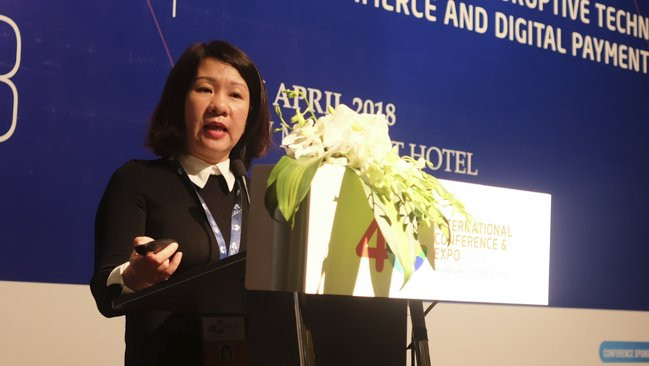Vietnam strengthens measures to collect online sales tax
Not only online sales, tax authorities are building a legal corridor for virtual currency, electronic currency and sharing economic models such as Uber and Grab.
Online sales with revenue of more than 100 million/year must pay tax
According to Ms. Manh Thi Tuyet Mai, Head of Corporate Income Tax Policy Department (Policy Department, General Department of Taxation), e-commerce is growing strongly in Vietnam. This also comes with new developments in tax management. Among them, there are many different issues that tax authorities in Vietnam are trying to solve.
In general, the subjects participating in e-commerce business activities in Vietnam include enterprises operating under Vietnamese law; foreign organizations and individuals doing business in Vietnam or having income in Vietnam (foreign contractors) and business households, groups and individuals.
|
| Business households will have to pay VAT and corporate income tax if their monthly revenue is greater than 100 million VND/year. |
Tax regulations between e-commerce enterprises and other enterprises are equal. For enterprises operating under Vietnamese law, these units must pay VAT and CIT.
For foreign contractors, if the buyer of e-commerce products is an organization established under Vietnamese law, the buyer is obliged to declare, deduct and pay on behalf of the foreign organization the tax that the contractor must pay.
If the buyer is another organization or individual, the foreign contractor must declare and pay taxes on the goods and services provided. In particular, if the foreign contractor does not have a permanent establishment in Vietnam, it can declare and pay taxes through tax agents. As for business households, this group of subjects will have to pay VAT and CIT in case the monthly revenue is greater than 100 million VND/year.
Grab, Uber tax deduction immediately when paying via bank
According to the representative of the General Department of Taxation, there are currently many problems and limitations in tax collection for e-commerce enterprises in Vietnam. One of them is that the issuance of business registration licenses for some industries still faces many difficulties.
“For example, virtual currency and electronic currency trading are not classified as business types, making it difficult to collect taxes. There is still much debate about whether Uber or Grab are transportation or technology businesses. Therefore, it is necessary to correctly identify the nature of transactions to classify the industry, especially for businesses in the sharing economy,” said a representative of the General Department of Taxation.
According to Ms. Manh Thi Tuyet Mai, the tax authority is also facing difficulties in collecting contractor tax on cross-border transactions. “With online sales, organizations and individuals mainly use websites for advertising, sales are made via inbox and delivery via shippers. Because these entities do not make online payments, management is difficult,” Ms. Mai said.
|
| Ms. Manh Thi Tuyet Mai, Head of Corporate Income Tax Policy Department, said that the tax authority will coordinate with other ministries and branches to implement tax management activities. Photo: Trong Dat |
To implement tax collection for online business activities, the tax authority has conducted propaganda and popularization of tax policies and issued documents guiding tax payment for businesses such as Uber Netherlands, Agoda, Booking,...
The Hanoi Tax Department and the Ho Chi Minh City Tax Department also coordinated with network operators to send messages to all individuals doing business on Facebook to guide them on tax declaration and payment. In the near future, the tax agency will submit to the National Assembly the revised Law on Tax Administration, which includes a chapter dedicated to electronic transactions in the tax field.
To implement tax management, the General Department of Taxation has proposed that the Ministry of Finance and the State Bank help control taxes right from the payment stage. Accordingly, commercial banks will deduct contractor tax before making payments to cross-border business organizations and individuals.
In addition, international card payment activities can be transacted through an intermediary payment gateway of the State Bank. Starting from 2019, international card transactions will have to be paid through an intermediary organization, the NAPAS center.



